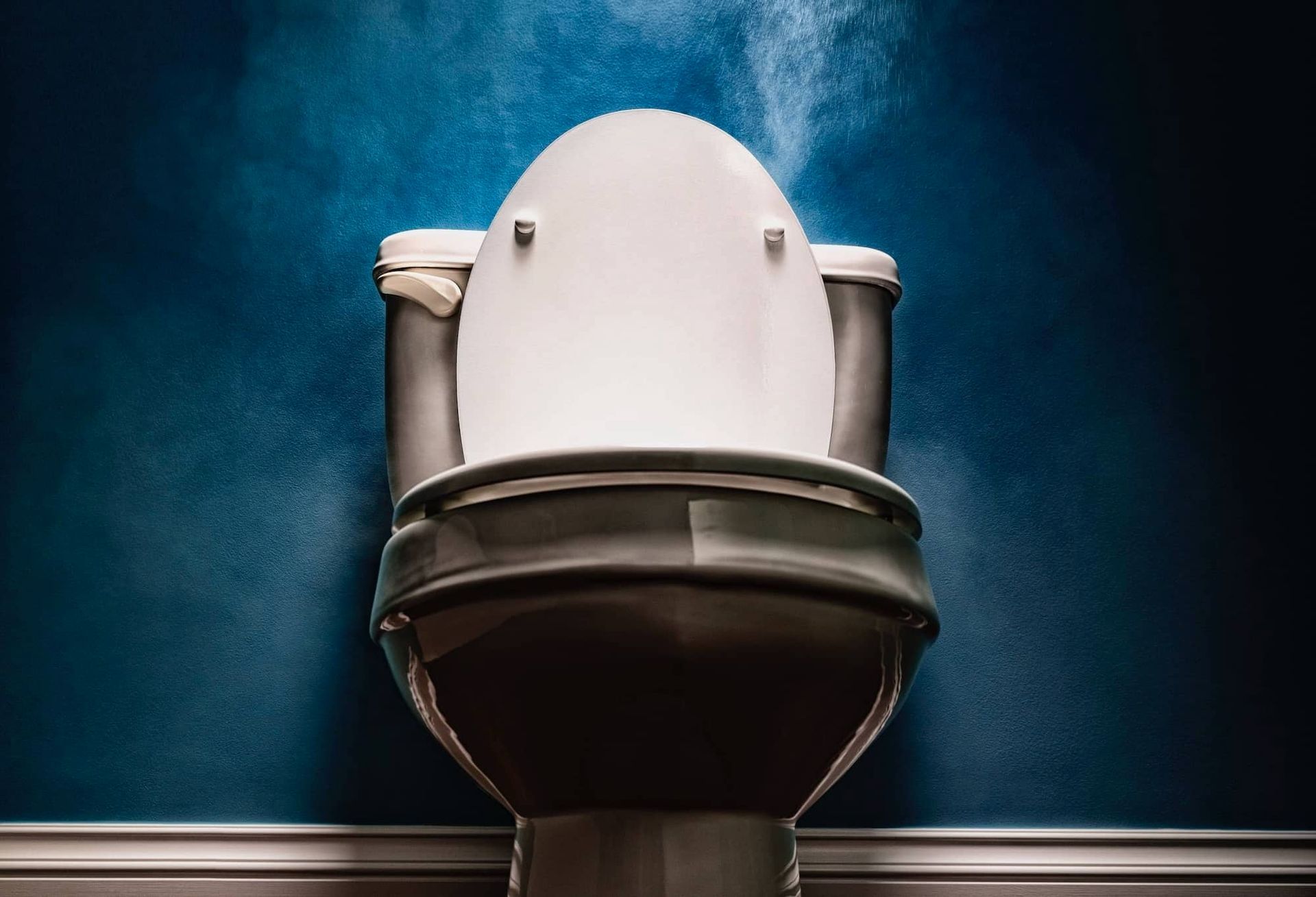How the Nose Knows Poop Smells - An Olfactory Guide
Unraveling the Stinky Secrets of Your Nose
Ever wonder why your nose is so good at sniffing out the unmentionable, like that unmistakable
whiff of poop?
In the following, we dive into the fascinating world of olfaction, exploring how our schnozes detect everything from fragrant flowers to, well, less pleasant aromas.
From the science of sniffing out 1 trillion smells to the evolutionary edge of dodging danger (or a bad date), explore the science behind our nose’s superpowers.

The nose knows is an old saying that implies cerebral intuition or instinct is akin to the unique prowess of the human nose in its ability to detect subtle scents.
It suggests arcane truths or insights that may not be apparent to the naked eye.
Olfaction, in its own way, is a multi functional cerebral factory of neurons, molecules and chemical signals that are sent to the olfactory nerve in the limbic section of the brain, which controls memory and emotion.
Surprisingly, smell is the only one of the five senses a fetus has in the womb, and it is the most developed in a child until the age of about 10, when sight becomes prominent.
According to research published in Science Direct, the human nose can detect as many as 1 trillion smells, which increases previous beliefs that the limit was circa 10,000 diverse odors.
The nose plays a formidable role in health, memory and social interactions. Research also indicates that nasal breathing can calm the nervous system, enhance memory, and improve cognitive function.
According to Dawn Goldworm, classic perfumer and creator of Nike’s signature scent:”because smell and emotion are stored as one memory, childhood tends to be the period in which you create the basis for smells you will like and hate for the rest of your life.”

The Nose And Its Evolutionary Significance
Down through time, both animals and humans have relied on their noses to detect unseen danger within or near their personal spaces.
This includes: the smell of fire, waste, the advance of both prey and predators, food identification and potential mate selection.
It remains one of the most important modes of interaction with the environment.
The sense of smell has ridden on the backs of the survival of the fittest since the beginning of time.
Detection and interpretation of chemicals signals occurs as the nose serves as a bridge to the brain’s olfactory system.
How Does The Nose Know Poop?
It is not like meeting an old friend and recognizing their particular cologne or after-shave, although if you are a living breathing human you need to accept
poop as a smell that is part of life.

The Queen of England, Miss America, 1994; Count Dracula; Bathsheba; Hamlet; Othello; Jamie and Claire from Outlander and Romeo and Juliette all did it, and like that old song, birds and bees do it too. (Consider honey, or maybe now you shouldn’t.)
But what is it exactly and why does it stink? No need to ponder yonder.
During the process of defecation, diverse volatile organic compounds like hydrogen sulfide and methanethiol, are released into the air.
Its particular odor can be caused by high fat diets, alcohol consumption, certain medications and lactose intolerance. (In its own way, stool bacteria can be very creative once the brain perceives the smell).
One odd question that should not come to mind before or slightly after any meal is whether or not when we smell feces, are we inhaling tiny particles of it? If so, are we sort of “eating” it through our noses?
One can only surmise that determining this one way or the other has not been considered a scientific priority.
The answer could be catastrophic and result in an entirely different perspective on food and what happens after we eat.

Could it imply wearing a specific type of mask or bringing forks, spoon plates and even napkins into the toilet to honor the ingestion gods of the dark universe who really don’t give a you-know what?
If so, would these items be dispensed in the modern bathrooms along with normal hygiene products?
Perhaps, too could this include submitting personal Id or passport to be checked at the door to insure there are no impostors using the toilet?
How The Nose Knows Poop Odors
The human nose detects the smell of poop via specialized receptor cells in the nose that bind to odor molecules released from feces once particles enter the nose and travel through the air with the greatest of ease.
This, in turn, activates odor receptors that bind to certain odor molecules and send signals to the olfactory nerve and olfactory bulb in the brain.
Finally, the signals are processed and combined like a big mixed salad, from many receptor neurons, and they create the perception of the unmistakeable evidence of a nearby mother load.
The specific types of compounds will depend upon the individual’s diet and gut microbes.
Foods like eggs and some vegetables are rich in sulfur, which can lead to the formation of gases during digestion.
Spicy foods
can also lend to particularly unpleasant experiences the morning after.

Alterations in the composition of stool odors can also rise from levels of hydration, use of antibiotics and some digestive conditions.
The odor can be a marker of concern for potential issues such as infection or problems with malabsorption.
There are smells and then there are SMELLS.
Walking through a summer garden scalloped by rich, fragrant blooms or a stroll beside the endless sea are only two examples of glorious glad-to-be-alive aromas that the brain stores along with any emotions that are evoked by their recall.
Alas, for there are those smells we would rather forget but unfortunately cannot live without experiencing; namely garbage and poop.
The elusive mystery about why some animals are repelled and others attracted to a particular scent is not really understood in scientific terms.
Recent Harvard research headed by Associate Professor of Cell Biology, Stephen Liberies, and published in the Proceedings of the National Academy of Sciences indicates that scientists are closer to understanding how the brain encodes likes and dislikes since the recent discovery of some of the chemical byproducts (receptors) responsible for the smell of rotting flesh.
Human attraction or repulsion to certain scents happens because of an intricate meshing of biological and evolutionary factors, personal experience and cultural influences.
Hormones greatly impact scent perception as well, especially for women during ovulation.
A specific scent can evoke recall of people, places or events, fusing positive or negative responses.
A fragrance can evoke tender moments from a first love or the stench from decomposing meat or fruit.
Body odor and use of fragrance varies from culture to culture, resulting in conflicting attitudes about scent and natural body odor.
Some may prefer wearing nothing and others the masking of these smells with deodorants and other products.
AirWisp Toilet Sprays And Poop Smells
In the intricate dance of olfaction, our noses navigate a world of scents, from the delightful to the downright unpleasant.
While poop's pungent aroma is an unavoidable part of life, you can take control of your bathroom's atmosphere with our AirWisp toilet sprays.
Spritz before you go to trap and neutralize odors, leaving your every bathroom experience, whether yours own or others, fresh and inviting.
Try AirWisp today and never light a match again!








